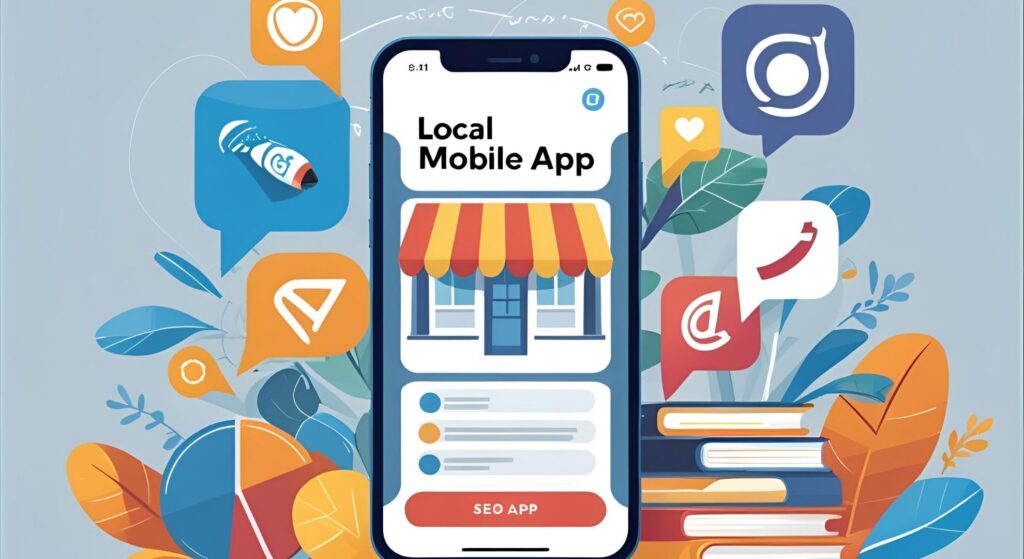Local mobile app SEO has evolved beyond simple keyword targeting to encompass sophisticated local search integration that drives location-based app discovery and user acquisition. Modern mobile users increasingly search for apps that address specific local needs, creating opportunities for businesses to capture high-intent customers through strategic ASO implementation that aligns with local search behavior patterns. The convergence of app store algorithms and local search preferences demands integrated approaches that optimize for both app visibility and geographic relevance.
The complexity of local app discovery requires understanding how users search for location-specific solutions across different platforms while implementing optimization strategies that address both immediate app store visibility and long-term local market penetration. Successful integration demands coordinated efforts across app store optimization, local SEO, and mobile marketing channels that create synergistic effects extending beyond individual platform performance to comprehensive local digital presence enhancement.
Key Takeaways
• Local keyword integration within app store metadata enhances discovery for location-specific searches while supporting broader local search ecosystem visibility
• Geographic targeting optimization leverages app store algorithms and user behavior patterns to improve visibility in specific markets and regions
• Cross-platform consistency ensures unified brand messaging and optimization strategies across app stores, local search, and mobile web presence
• Review and rating strategies aligned with local customer expectations improve both app store rankings and local search credibility signals
• Analytics integration provides comprehensive insights into local user acquisition patterns and optimization opportunities across multiple channels
• Competitive positioning within local markets requires sophisticated analysis of both app store competition and broader local digital landscape dynamics
Overview
Local businesses and service providers must integrate App Store Optimization with broader local search strategies to maximize mobile user acquisition while building sustainable competitive advantages in target geographic markets. This comprehensive approach examines proven methodologies for aligning ASO initiatives with local search objectives, creating unified optimization strategies that drive both app downloads and overall local digital visibility. The framework emphasizes practical implementation techniques that balance app store algorithm requirements with local search best practices for sustained growth across multiple digital touchpoints.
Understanding Local App Discovery Patterns
Local app discovery represents a unique intersection of immediate utility needs and geographic relevance that differs significantly from general app store browsing behavior. Users seeking location-based solutions typically demonstrate higher intent and conversion potential while requiring specific functionality that addresses local market conditions, regulations, and preferences. Understanding these discovery patterns enables optimization strategies that align with actual user behavior rather than generic app store optimization approaches.

The relationship between local search queries and app store searches reveals opportunities for cross-channel optimization that captures users across multiple touchpoints in their decision-making process. Research indicates that 67% of local service searches involve mobile devices, with 43% of those users subsequently exploring related mobile applications. This behavior pattern creates optimization opportunities that extend beyond individual platforms to encompass comprehensive local digital presence strategies.
Mobile-first user behavior in local markets demands app store optimization that considers the entire customer journey from initial local search queries through app discovery, download, and ongoing engagement. Users increasingly expect seamless transitions between web-based local search results and mobile app experiences, requiring coordination between local SEO and ASO strategies that support unified customer experiences across all digital touchpoints.
User Intent Analysis for Local Apps
Analyzing user intent patterns for local app searches reveals distinct categories including immediate need fulfillment, service discovery, and ongoing relationship building with local businesses. Each intent category requires different optimization approaches, from emergency service apps optimized for crisis-related keywords to restaurant apps targeting dining exploration and reservation functionality.
Geographic intent modifiers significantly impact app store search behavior, with users incorporating neighborhood names, city references, and regional identifiers when seeking location-specific solutions. Understanding these search patterns enables keyword strategies that capture local intent while supporting broader geographic expansion as app presence grows in new markets.
Strategic Keyword Integration for Local Apps
Effective local app store optimization requires sophisticated keyword strategies that balance location-specific terms with functional descriptors that communicate app capabilities clearly. Primary keyword selection should prioritize terms that combine service categories with geographic modifiers while maintaining natural language patterns that align with user search behavior. Strategic implementation involves incorporating these terms throughout app store metadata including titles, descriptions, and keyword fields.
Long-tail keyword opportunities in local app optimization often provide competitive advantages through lower competition levels and higher conversion potential. These keywords typically combine specific services, location identifiers, and user intent indicators that capture highly qualified traffic while supporting improved ranking positions for broader competitive terms over time.
Seasonal and event-based keyword integration addresses temporary spikes in local search volume related to holidays, festivals, and community activities that create optimization opportunities. Strategic planning for these temporal keywords enables improved visibility during high-value periods while building overall keyword authority that benefits year-round optimization efforts.
Multi-Location Keyword Strategies
Businesses serving multiple geographic markets require sophisticated keyword strategies that address different local search patterns while maintaining consistent brand messaging and optimization focus. Implementation approaches include location-specific app versions, dynamic keyword integration based on user location, and comprehensive keyword mapping that addresses competitive dynamics in different markets.
Competitive keyword analysis for local apps must consider both direct app store competitors and broader local service providers who may not have dedicated mobile applications but compete for the same customer base. This comprehensive competitive intelligence informs keyword strategies that capture market share while identifying differentiation opportunities through superior app functionality and user experience.
Cross-Platform Optimization Strategies
Successful local app marketing requires coordination across multiple app stores including Apple App Store, Google Play Store, and emerging platform alternatives that serve specific geographic markets or user demographics. Each platform demonstrates unique algorithm preferences and user behavior patterns that require tailored optimization approaches while maintaining consistent brand messaging and value proposition communication.
Platform-specific optimization strategies must account for different metadata requirements, review systems, and promotional opportunities while ensuring unified local search visibility across all channels. Apple App Store optimization emphasizes visual appeal and user experience communication, while Google Play Store algorithms prioritize user engagement metrics and keyword relevance signals.
Integration with mobile web presence ensures comprehensive local search coverage that captures users regardless of their preferred discovery method. Coordinated optimization across app stores and mobile websites creates multiple touchpoints for local customer acquisition while building domain authority that supports improved visibility across all digital channels.
Technical Implementation Considerations
Deep linking implementation enables seamless transitions between local search results and app content while supporting improved user experience and engagement metrics. Strategic deep linking connects specific app functionality with local search queries, enabling users to access relevant app features directly from search results without navigation friction.
App indexing strategies help search engines understand app content while enabling app pages to appear in traditional search results alongside web content. Google App Indexing and Apple Universal Links provide technical frameworks for integrating app content with broader search ecosystems while supporting improved local visibility and user acquisition.
Geographic Targeting and Localization
Geographic targeting optimization leverages app store algorithms that prioritize local relevance while addressing user preferences for location-appropriate content and functionality. Strategic implementation includes location-based metadata optimization, regional keyword targeting, and cultural adaptation that resonates with local user expectations and behavior patterns.

Localization extends beyond simple translation to encompass cultural adaptation, local regulation compliance, and market-specific functionality that addresses unique regional requirements. Comprehensive localization strategies improve both app store visibility and user satisfaction while supporting expansion into new geographic markets through authentic local market presence.
Regional competitive analysis reveals market-specific opportunities and challenges that inform localization priorities and resource allocation decisions. Understanding local competitive landscapes enables strategic positioning that leverages market gaps while addressing established competitor strengths through superior functionality or user experience innovation.
Cultural Adaptation Strategies
Cultural adaptation for local apps requires understanding regional preferences, communication styles, and functional expectations that influence user adoption and engagement patterns. Strategic adaptation includes visual design preferences, feature prioritization, and customer service approaches that align with local market expectations while maintaining brand consistency.
Local partnership integration creates opportunities for enhanced market penetration through established relationships and regional expertise. Strategic partnerships with local businesses, organizations, and influencers provide credibility signals while supporting improved app store visibility through increased downloads and positive reviews from authentic local users.
Review and Rating Optimization
Review generation strategies for local apps must balance authentic user feedback encouragement with app store guideline compliance while building credibility that supports both app store rankings and broader local search authority. Successful approaches include post-service review requests, incentive programs that comply with platform policies, and customer service excellence that naturally generates positive feedback.
Review response strategies demonstrate commitment to customer satisfaction while incorporating relevant local keywords and business information that supports SEO objectives. Professional, timely responses to both positive and negative reviews build trust signals while providing opportunities for keyword integration and local market positioning.
Multi-platform review management ensures consistent reputation across all app stores and review platforms while providing comprehensive insights into customer satisfaction patterns and improvement opportunities. Coordinated review strategies address platform-specific audience expectations while maintaining unified brand messaging and customer service quality standards.
Reputation Management Integration
Integration with broader local reputation management strategies ensures consistent brand perception across all digital touchpoints while leveraging positive app reviews to support local search authority. Cross-platform reputation management includes review syndication, testimonial utilization, and crisis response procedures that protect brand equity while supporting continued growth.
Customer feedback analysis provides insights into feature requests, usability issues, and market preferences that inform both app development priorities and broader local market strategy. Regular feedback analysis enables continuous improvement while identifying opportunities for enhanced local market penetration through superior user experience delivery.
Analytics and Performance Measurement
Comprehensive analytics implementation tracks app store performance alongside local search metrics to provide unified insights into optimization effectiveness and user acquisition patterns. Integration across platforms enables understanding of customer journey complexity while identifying optimization opportunities that span multiple digital touchpoints.
Attribution modeling for local app marketing requires sophisticated approaches that account for cross-channel influence and extended customer decision timelines. Understanding how local search visibility influences app discovery and vice versa enables optimization strategies that maximize synergistic effects while improving overall marketing efficiency.
Performance benchmarking against local competitors provides context for campaign effectiveness while identifying areas where additional investment could generate competitive advantages. Regular competitive analysis enables strategic adjustments that maintain market positioning while responding to changing competitive dynamics and market conditions.
Conversion Tracking and Optimization
Advanced conversion tracking connects app downloads to actual business outcomes including customer visits, purchases, and long-term retention rates. Understanding these relationships enables optimization strategies that prioritize high-value user acquisition while improving overall marketing return on investment through better targeting and conversion rate optimization.
Cohort analysis reveals how local user acquisition channels influence long-term customer value while identifying patterns that support improved retention and engagement strategies. This longitudinal analysis informs both immediate optimization decisions and strategic planning for sustainable growth in local markets.
Competitive Analysis and Market Positioning
Local app market analysis requires understanding both direct app competitors and broader competitive landscape including businesses without dedicated applications but serving similar customer needs. Comprehensive competitive intelligence informs positioning strategies that leverage market gaps while addressing established competitor advantages through superior functionality or user experience.

Market positioning for local apps demands clear value proposition communication that differentiates from both app-based and traditional service providers while addressing specific local market needs and preferences. Strategic positioning includes feature development, pricing strategies, and marketing messaging that resonates with local audiences while supporting sustainable competitive advantages.
Competitive monitoring enables rapid response to market changes and competitor activities while identifying opportunities for improved market share through strategic positioning and feature development. Regular competitive analysis supports both short-term tactical adjustments and long-term strategic planning for continued market leadership.
Strategic Differentiation Approaches
Differentiation strategies for local apps should emphasize unique value propositions that address unmet local market needs while leveraging technology advantages that traditional service providers cannot easily replicate. Innovation opportunities include enhanced user experience, superior customer service integration, and functionality that specifically addresses local market challenges.
Partnership strategies with complementary local businesses create competitive advantages while supporting improved app store visibility through cross-promotion and enhanced user value. Strategic partnerships should provide mutual benefits while strengthening local market position through expanded service offerings and customer base access.
Future Trends and Emerging Opportunities
Voice search integration represents an emerging opportunity for local app optimization as users increasingly utilize voice commands for location-based queries and app interactions. Strategic voice optimization includes natural language keyword integration and functionality development that supports voice-driven user experiences.
Augmented reality integration creates opportunities for enhanced local user experiences while supporting improved app store visibility through innovative functionality that addresses real-world local needs. AR implementation should focus on practical utility rather than novelty while providing genuine value that encourages continued usage and positive reviews.
Artificial intelligence integration enables personalized local experiences while supporting improved user engagement and retention rates. AI implementation opportunities include predictive local recommendations, automated customer service, and dynamic content personalization that enhances user value while supporting improved app store algorithm performance.
Technology Integration Strategies
Emerging technology integration should prioritize user value creation over technical sophistication while ensuring implementations support broader local search and app store optimization objectives. Strategic technology adoption requires careful evaluation of development costs versus user acquisition and retention benefits.
Platform evolution monitoring enables early adoption of new optimization opportunities while ensuring continued compliance with changing app store requirements and local search algorithm updates. Proactive adaptation to platform changes provides competitive advantages while maintaining optimization effectiveness through evolving digital landscapes.
Frequently Asked Questions
How does local app optimization differ from general app store optimization? Local app optimization requires specific focus on geographic relevance, local keyword integration, and community-based user acquisition strategies. Success depends on understanding local market dynamics, cultural preferences, and location-specific user needs that differ significantly from broader app market optimization approaches.
What role do local keywords play in app store rankings? Local keywords significantly impact app store visibility for location-based searches while supporting broader geographic targeting strategies. Effective implementation requires balancing location-specific terms with functional descriptors while maintaining natural language patterns that align with user search behavior.
How should businesses coordinate ASO with broader local SEO strategies? Coordination requires unified keyword strategies, consistent brand messaging across platforms, and integrated analytics that track performance across multiple digital touchpoints. Successful integration creates synergistic effects that improve overall local digital visibility while supporting user acquisition across multiple channels.
What metrics should businesses track for local app performance? Critical metrics include local download rates, geographic user distribution, location-based engagement patterns, local keyword rankings, and conversion rates from app usage to business outcomes. Comprehensive measurement requires integration across app store analytics, local search performance, and business revenue attribution.
How do app store algorithms consider geographic relevance? App store algorithms increasingly prioritize local relevance through user location data, local keyword matching, and regional engagement patterns. Understanding these algorithmic preferences enables optimization strategies that improve visibility for location-specific searches while supporting broader geographic expansion efforts.
What competitive analysis approaches work best for local app markets? Effective competitive analysis examines both direct app competitors and broader local service providers while considering market-specific dynamics and user preferences. Analysis should include app store performance, local search visibility, customer review patterns, and strategic positioning approaches across multiple digital channels.
How often should businesses update local app optimization strategies? Local app optimization requires monthly performance reviews with quarterly strategic adjustments based on market changes, competitive activities, and platform algorithm updates. Continuous monitoring enables rapid response to optimization opportunities while maintaining consistent growth momentum through evolving market conditions.
Sources
App Store Optimization Resources:
- Apple App Store Connect Guidelines
- Google Play Console Documentation
- App Store Optimization Academy
Local Search Integration:
Analytics and Performance Tracking:
- App Analytics Platforms
- Mobile Attribution Solutions
- Local Business Intelligence Tools
Technical Implementation:
- App Indexing Documentation
- Universal Links Implementation
- Deep Linking Best Practices
Market Research and Competitive Analysis:
- Mobile App Market Research
- Local Market Intelligence Platforms
- Competitive Intelligence Tools
Maximize your local app success with integrated App Store Optimization and local search strategies that drive targeted user acquisition and sustained growth. Cloud 7 Agency specializes in comprehensive mobile marketing approaches that align ASO initiatives with local search objectives, creating unified optimization strategies that capture high-intent local customers across multiple digital touchpoints. Contact our mobile marketing specialists today to discover how integrated optimization can transform your local app performance and market positioning.

